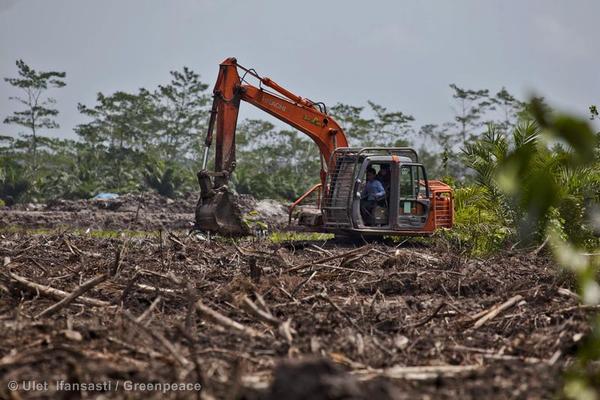Palm oil is a staple food for millions of people worldwide, and it is an ingredient or component of 50% of packaged consumer products, from chocolate, to biodiesel, to shampoo. As a commodity, its ubiquity, high yield, and versatility of uses make it virtually irreplaceable. In the US alone, imports of palm oil have increased by a factor of five in the last decade.
However, some producers have sought to exploit the versatility and growing popularity of palm oil to make a quick buck. They have cleared ancient forestland in vulnerable places, putting the lives of its human and animal inhabitants at risk. And they have done it to disastrous results.
Indonesias forests have suffered the most from this shift toward dirty palm oil production. The archipelago nation is home to some of the worlds greatest forestland. It boasts unparalleled biodiversity and creatures that do not exist anywhere else, including the orangutan, the Borneo pygmy elephant, and the Sumatran tiger, of which an estimated 400 are left. Dirty palm oil production in Indonesia poses a direct threat to the habitat and survival of these animals.
Thankfully, alternatives exist. Palm oil can be produced without putting people, animals, and habitats in dangerit has been for generations. And many of the companies that once used dirty palm oil have pledged to transition their supply chains toward good, deforestation-free palm oil. Already, some very recognizable names are on that list, including LOreal, Kellogg, Ferrero (maker of Nutella), and Safeway. The pioneers of this shift are Nestle and Unilever.
Those companies responded because their customers demanded it. Greenpeace was able to organize the campaign, but it was our supporters and their actions that companies listened to.
However some companies have still not gotten the message. In the coming months, Greenpeace will be drumming up new initiatives to make those hold-outs listen. For now, you can pledge your support for the people who live in Indonesias forests and for the elephants, orangutans, and Sumatran tigers they share it with. Tell corporations to say no to dirty palm oil and to source from good suppliers.





